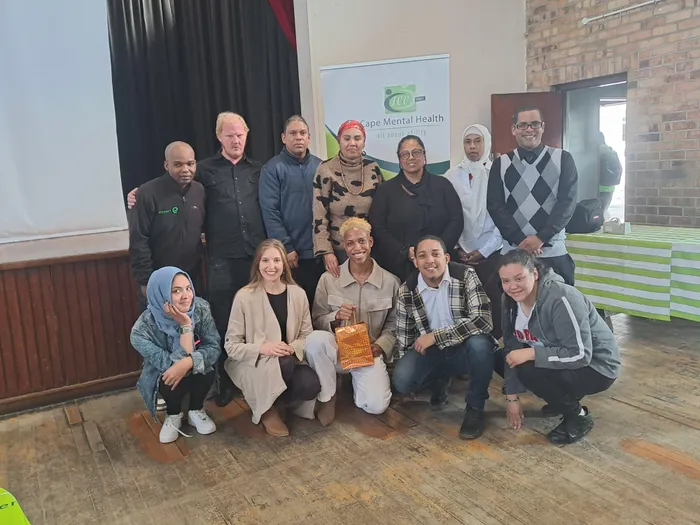Improving mental health support for young people with psychosocial disabilities

Board members of CCAB and SAFMH, along with young service users from Fountain House, came together at the CCAB Annual General Meeting.
Image: Supplied
Cape Mental Health is using Psychosocial Disability Awareness Month, which took place in July, to highlight the urgent need for improved mental health services for young people.
The focus is especially on those aged 15 to 25 who live with psychosocial disabilities.
This year’s campaign theme was: It’s the hour to make our youth empowered.
It called on government, civil society, and communities to take decisive steps to improve mental health access and support for youth.
The need, according to Cape Mental Health, is especially urgent in under-resourced areas, where many face poverty, unemployment, trauma, and violence - all of which increase vulnerability to mental health issues.
Speaking at the Cape Community Advocacy Body’s annual general meeting on Tuesday, July 29, keynote speaker Samukelo Nxumalo of the South African Federation for Mental Health (SAFMH) youth forum said young people were under immense pressure and needed space to be heard.
“Parents are bringing their unresolved traumas onto their children,” said Mr Nxumalo.
“We cannot break the cycle of poor mental health and trauma in our families if we are not allowed to talk openly about mental health inside our homes.”
He said young people often bear the burden of school, family obligations, and future expectations without proper support.
“Sometimes we need a doctor, a psychologist, or medication to help us cope, but currently, access to therapy is a privilege. We need to create environments in our communities where the average young person can walk into a facility and say, ‘I am depressed, and I need help.’”
Cape Mental Health’s CEO, Professor Ingrid Daniels, said that youth in marginalised communities face many daily stressors that can contribute to psychosocial disability.
“It’s time to empower our youth with the support, tools, and opportunities they deserve,” she said. “When we invest in the mental health of our youth, we invest in the future generation and leaders of our country.”
Cape Mental Health, based in Observatory, runs several programmes aimed at supporting youth mental health, including YouthMatters, which offers school-based workshops to build mental health awareness and coping skills in underserved communities.
The organisation also operates Fountain House, a psychosocial rehabilitation programme that provides peer support and skills development, and Ubuntu Car Wash, a project offering structured work opportunities for youth with psychosocial and intellectual disabilities.
The organisation said early intervention and access to community-based mental health services can help reduce stigma and support recovery.
The Cape Community Advocacy Body (CCAB), supported by Cape Mental Health, also plays a critical role in advocating for the rights of persons with psychosocial disabilities and in amplifying their voices at the policy level.
This month’s campaign calls on the government to strengthen services at the primary health care level, invest in early intervention strategies, and include young people with lived experience in shaping mental health policies.
For more information, visit www.capementalhealth.co.za or contact Cape Mental Health directly.
Related Topics: